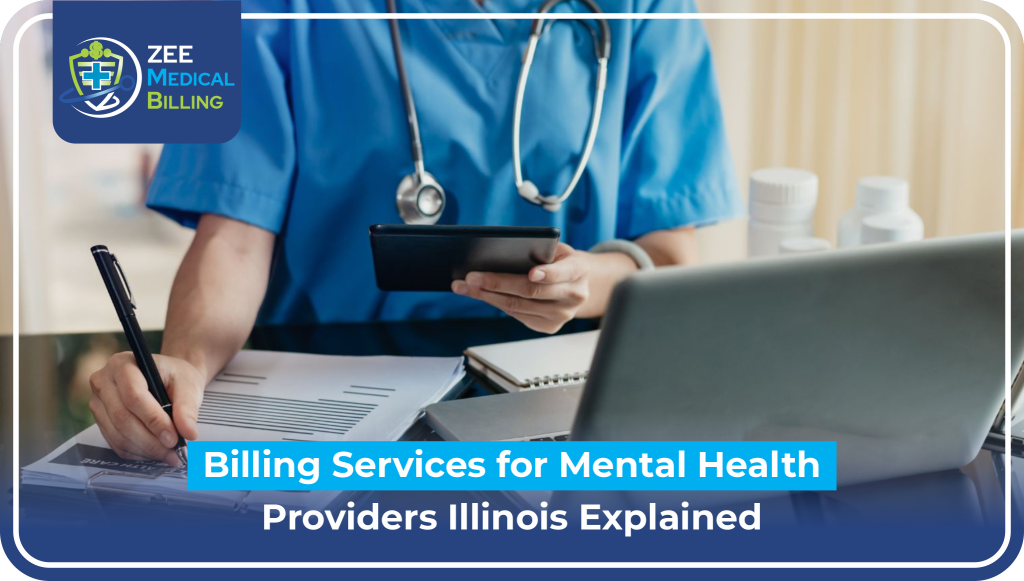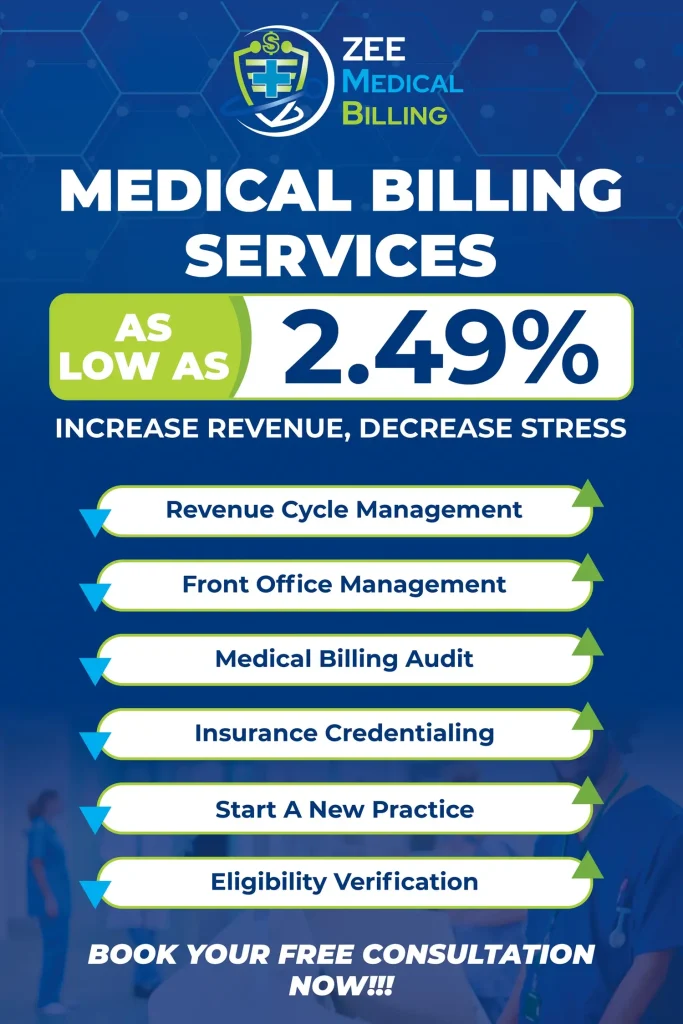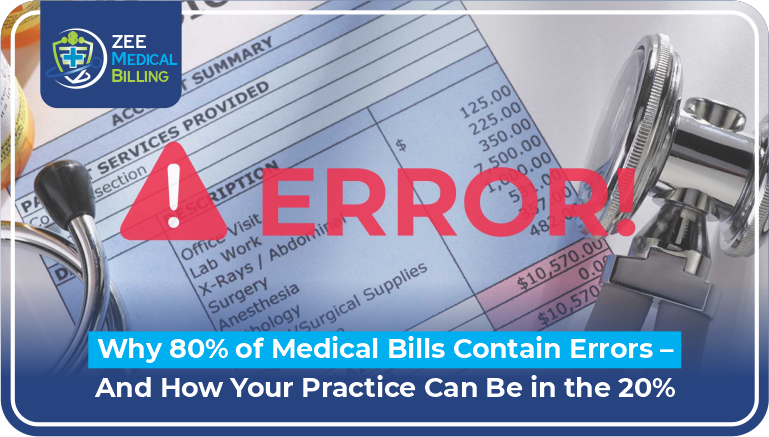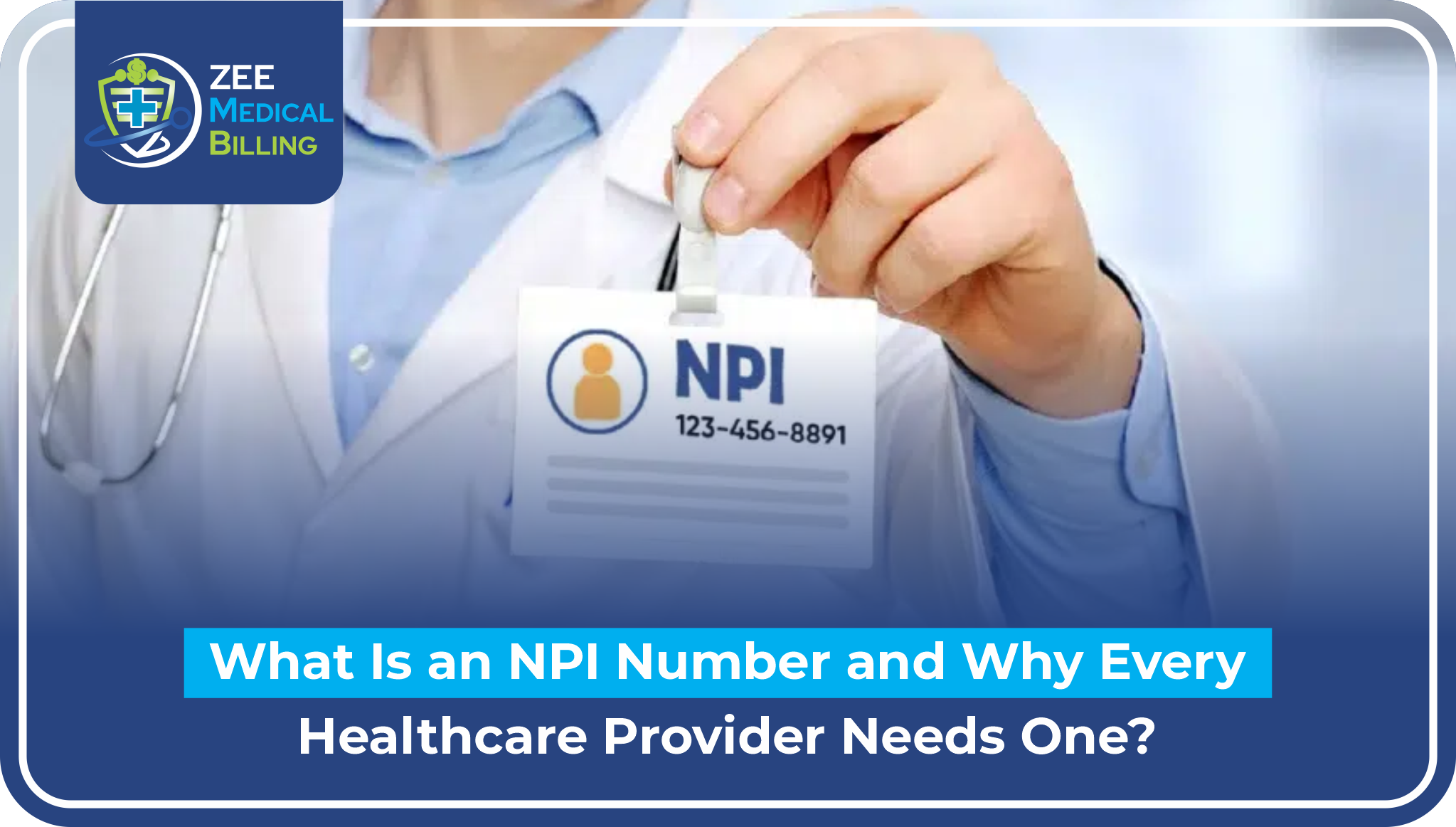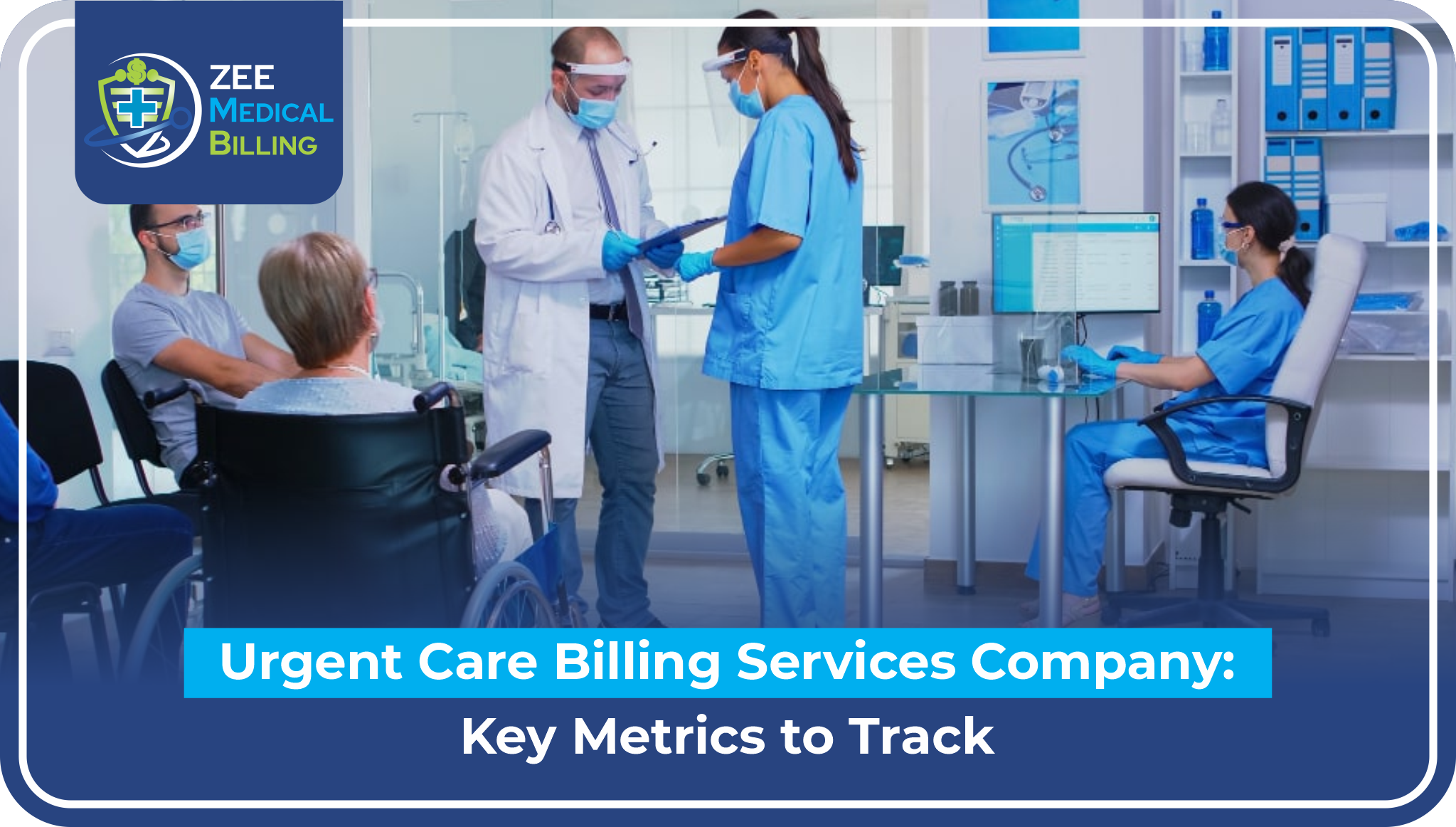Billing Services for Mental Health
Illinois mental health providers face a billing environment that’s uniquely challenging—combining complex state Medicaid programs, multiple managed care organizations, diverse commercial insurance requirements, and regulations that seem to change with Chicago’s weather. Understanding how billing services for mental health providers work specifically in Illinois isn’t just helpful—it’s essential for financial survival and practice growth in the Prairie State.Billing Services for Mental Health
The Illinois Mental Health Billing Landscape
Why Illinois Presents Unique Challenges
Illinois isn’t just another state when it comes to mental health billing. With a population of nearly 13 million spread across urban Chicago, suburban collar counties, and rural downstate communities, the state operates a complex healthcare system that challenges even experienced billing professionals.
The Illinois Medicaid program alone serves approximately 3 million residents through multiple managed care organizations (MCOs) that operate in different regions with varying policies. Add in major commercial insurers with Illinois-specific policies, state regulations that extend beyond federal requirements, and local market dynamics, and you’ve got a billing landscape that demands specialized knowledge.
Billing services for mental health providers in Illinois must navigate:
- Multiple Medicaid MCOs with distinct billing requirements
- State-specific documentation standards
- Illinois parity law enforcement patterns
- Regional variations in insurance coverage
- Unique credentialing requirements
- Illinois Department of Healthcare and Family Services (HFS) regulations
Without Illinois-specific expertise, practices leave money on the table or create compliance risks that can devastate finances.
State-Specific Regulations Affecting Mental Health Billing
Illinois establishes regulations beyond federal requirements that directly impact mental health billing:
Timely Filing: Illinois Medicaid typically requires claim submission within 180 days of service, though specific MCOs may have different deadlines
Credentialing Standards: State-specific requirements for mental health provider credentials and documentation
Service Definitions: Illinois HFS defines covered services with state-specific parameters
Documentation Requirements: Standards that extend beyond federal minimums
Fraud and Abuse Provisions: Illinois-specific enforcement mechanisms and penalties
Understanding these regulations isn’t optional—violations trigger payment recoupment, future denials, or program exclusion. Professional billing services monitor Illinois HFS updates proactively and adjust processes before changes affect revenue.
What Are Billing Services for Mental Health?
Comprehensive Revenue Cycle Management
Billing services for mental health provide end-to-end management of the entire revenue cycle, from patient registration through final payment collection. This comprehensive approach includes:
Pre-Service: Patient registration, insurance verification, benefit confirmation, authorization obtaining, financial counseling
Service Delivery: Charge capture, accurate coding, documentation review, compliance checking
Post-Service: Claim submission, payment posting, denial management, patient billing, collections, reporting
Each stage impacts the next. Excellence in all areas creates seamless cash flow; weakness anywhere causes revenue leakage that compounds over time.
Specialized vs. General Medical Billing
Generic medical billing knowledge doesn’t translate effectively to mental health services. Specialized billing services for mental health understand:
- Session-based time coding requirements
- Combination service billing (E/M plus psychotherapy)
- Add-on code utilization for maximum reimbursement
- Mental health-specific documentation standards
- Parity law provisions and enforcement
- Behavioral health CPT codes and modifiers
- Medical necessity standards applied to psychiatric services
This specialization makes the critical difference between capturing appropriate reimbursement and constantly fighting denials. ZEE Medical Billing provides comprehensive mental health billing services with deep understanding of these specialty-specific requirements.
Key Components of Illinois Mental Health Billing
Illinois Medicaid and Managed Care Organizations
Illinois Medicaid operates through multiple MCOs serving different regions. Understanding each MCO’s specific requirements is fundamental to billing success:
Major Illinois Medicaid MCOs:
- Meridian Health Plan
- Blue Cross Community Health Plans
- CountyCare (Cook County)
- Illinicare Health
- Molina Healthcare
- NextLevel Health
Understanding Different MCO Requirements
Each MCO has distinct requirements:
Provider Portals: Different online systems for claim submission and tracking
Authorization Requirements: Varying rules about which services require pre-authorization
Documentation Standards: Different expectations for progress notes and treatment plans
Covered Services: Some variation in what behavioral health services are covered
Billing Procedures: Unique claim submission formats and requirements
Payment Timelines: Different processing speeds and payment schedules
Tracking these differences manually becomes overwhelming. Professional billing services for mental health maintain current knowledge across all Illinois MCOs, ensuring appropriate billing regardless of patient’s managed care plan.
Private Insurance Payer Landscape
Illinois mental health providers also work with major commercial insurers:
Blue Cross Blue Shield of Illinois: The state’s largest private insurer with significant market share
Aetna, UnitedHealthcare, Cigna, Humana: National carriers with Illinois-specific policies
Health Alliance Medical Plans: Regional insurer with specific requirements
Employee Assistance Programs (EAPs): Short-term coverage with unique billing procedures
Each payer has distinct billing requirements, reimbursement rates, and authorization processes. Illinois-specific policies often differ from the same insurer’s requirements in neighboring states.
Credentialing in Illinois
Getting credentialed with Illinois payers involves navigating state-specific requirements:
- Illinois professional license verification
- Malpractice insurance meeting Illinois minimum requirements
- CAQH profile maintenance with Illinois practice information
- Primary source verification of credentials
- Background checks and sanctions screening
- Hospital privileges documentation (when applicable)
- Specialty board certification verification
Credentialing timelines in Illinois typically range from 90 to 180 days. During this period, providers can’t bill in-network rates, creating revenue loss. Professional credentialing management expedites the process and ensures applications are complete from initial submission.
Common Billing Challenges for Illinois Mental Health Providers
Complex Pre-Authorization Requirements
Illinois mental health providers face extensive authorization requirements that vary by payer. Common scenarios requiring authorization include:
- Initial psychiatric evaluations (some payers)
- Outpatient therapy beyond certain session limits
- Intensive outpatient programs (IOP)
- Partial hospitalization programs (PHP)
- Psychological testing
- Certain medication management services
Authorization requirements differ between Illinois Medicaid MCOs and between commercial payers. Missing required authorizations results in complete claim denials—zero reimbursement for services already provided.
Documentation Standards and Medical Necessity
Illinois payers demand thorough documentation establishing medical necessity. Generic progress notes don’t satisfy requirements. Documentation must include:
- Specific presenting symptoms with severity assessment
- Mental status examination findings
- DSM-5 diagnosis with supporting clinical evidence
- Treatment plan with measurable, time-specific goals
- Interventions used during session
- Patient response to treatment with objective measures
- Progress toward established goals
- Clinical justification for continued services
Documentation deficiencies are the leading cause of mental health claim denials in Illinois. Even when treatment is medically necessary, inadequate documentation triggers denials requiring time-consuming appeals.
Parity Law Violations
Illinois enacted comprehensive mental health parity legislation requiring equal coverage for mental health and physical health conditions. Despite this legal requirement, parity violations remain common:
- Stricter medical necessity criteria for mental health
- More aggressive utilization review for behavioral health
- Session limits that don’t apply to physical health treatment
- Higher patient cost-sharing for mental health services
When payers violate parity laws, effective appeals require specific knowledge of Illinois parity provisions and federal requirements. Professional billing services understand these laws and advocate effectively for appropriate coverage.
Telehealth Billing in Illinois
Illinois significantly expanded telehealth coverage and now requires parity for mental health telehealth services. However, telehealth billing involves specific requirements:
- Appropriate place of service codes (typically 02)
- Modifier requirements varying by payer
- Informed consent documentation
- Technology standards meeting HIPAA requirements
- Coverage verification specifically for telehealth benefits
Insurance verification must confirm telehealth coverage, as policies vary between plans. Some cover all mental health services via telehealth; others limit coverage to specific circumstances or service types.
How Billing Services Solve Illinois-Specific Problems
MCO-Specific Expertise
Professional billing services for mental health maintain expertise across all Illinois Medicaid MCOs:
- Current knowledge of each MCO’s authorization requirements
- Understanding of MCO-specific covered services
- Familiarity with each MCO’s provider portal and claim submission process
- Relationships with MCO provider relations representatives
- Experience with MCO-specific appeals processes
This MCO-specific knowledge prevents denials before they occur and resolves issues quickly when they arise. As detailed in resources about top medical billing services in Illinois, specialized expertise directly impacts revenue.
State Compliance Management
Illinois Department of Healthcare and Family Services Updates
Illinois HFS regularly updates policies affecting Medicaid billing. Professional billing services:
- Monitor Illinois HFS policy updates proactively
- Adjust billing procedures before changes take effect
- Communicate relevant updates to provider clients
- Implement compliance measures protecting against violations
- Maintain documentation demonstrating policy adherence
This proactive approach prevents compliance issues rather than reacting after problems occur.
Denial Management for Illinois Payers
When Illinois payers deny claims, professional services respond systematically:
- Analyze denial reasons specific to Illinois payer patterns
- Determine which denials are worth appealing based on success probability
- Prepare comprehensive appeals citing Illinois parity laws when appropriate
- Escalate appeals through Illinois-specific processes
- Track outcomes to identify patterns requiring process changes
Understanding Illinois-specific denial patterns and payer behaviors improves appeal success rates significantly.
Essential Services for Illinois Mental Health Providers
Eligibility Verification for Illinois Payers
Comprehensive eligibility verification goes beyond confirming active coverage. For Illinois providers, verification must identify:
- Which Illinois Medicaid MCO the patient is enrolled with
- Specific mental health benefits under the patient’s plan
- Pre-authorization requirements for services planned
- Session limits and frequency restrictions
- Copayment, coinsurance, and deductible amounts
- Telehealth coverage specifics
- Coordination of benefits when multiple insurances exist
Illinois-specific verification catches coverage issues before services are provided, preventing denied claims and patient billing problems.
Authorization Tracking and Management
Given Illinois payers’ extensive authorization requirements, systematic tracking is essential:
- Identifying which services require authorization for which payers
- Submitting authorization requests with complete supporting documentation
- Following up on pending authorizations systematically
- Tracking authorization expiration dates
- Renewing authorizations before they lapse
- Documenting authorization numbers for claim submission
Automated systems alert staff when authorizations are needed or expiring, preventing the devastating scenario of providing services without required approval.
Claims Submission and Follow-Up
Professional claim submission for Illinois payers includes:
- Clean claims with complete, accurate information
- Appropriate CPT codes and modifiers for services provided
- Compliance with Illinois-specific billing requirements
- Electronic submission to appropriate Illinois payer
- Prompt follow-up on unpaid claims
- Payment posting with attention to underpayments
- Contractual adjustment verification
Systematic follow-up ensures claims don’t age indefinitely in accounts receivable, converting services into collected cash efficiently.
Patient Billing and Collections
When patients have financial responsibility, professional services:
- Provide clear, detailed statements
- Communicate payment expectations before services begin
- Offer payment plans when appropriate
- Follow up on outstanding balances systematically
- Handle patient billing questions professionally
- Pursue collections when necessary while preserving relationships
Transparent financial communication improves collections while maintaining positive patient relationships.
Technology Solutions for Illinois Practices
Integration with Illinois Payer Systems
Advanced billing technology integrates with Illinois payer systems:
- Electronic eligibility verification across Illinois MCOs and commercial payers
- Electronic claim submission via Illinois Medicaid and commercial clearinghouses
- Electronic remittance advice (ERA) for automated payment posting
- Real-time claim status checking
- Electronic prior authorization submission when available
Integration eliminates manual processes that create errors and delays.
Real-Time Reporting and Analytics
Quality reporting provides visibility into practice financial performance:
- Collection rates overall and by Illinois payer
- Denial rates with analysis of common reasons
- Accounts receivable aging showing collection trends
- Revenue by service type and provider
- Authorization compliance tracking
- Benchmark comparisons against Illinois mental health practice norms
These metrics enable data-driven decisions about operations, staffing, and growth strategies.
Choosing Billing Services in Illinois
Illinois Experience and Expertise
When evaluating billing services for mental health providers in Illinois, prioritize:
Illinois-Specific Experience: How many Illinois mental health practices do they currently serve?
MCO Knowledge: Do they understand all major Illinois Medicaid MCOs?
State Compliance: How do they stay current with Illinois HFS policy changes?
Payer Relationships: Do they have established relationships with Illinois payers?
Local Presence: Do they understand Illinois market dynamics and regional variations?
Proven Results: Can they demonstrate collection improvements for Illinois practices?
As explained in discussions about why choose Illinois billing experts, local expertise makes a measurable difference in results.
Questions to Ask Potential Partners
When evaluating billing services for your Illinois mental health practice:
- How many Illinois mental health practices do you currently serve?
- What’s your experience with Illinois Medicaid MCOs?
- What’s your average collection rate for Illinois mental health providers?
- How do you handle Illinois-specific pre-authorization requirements?
- What’s your process for staying current with Illinois HFS updates?
- Can you provide references from Illinois mental health practices?
- What technology do you use, and does it integrate with Illinois payer systems?
- What reporting will I receive about my practice performance?
- How do you handle credentialing with Illinois payers?
- What’s your fee structure, and what services are included?
Responses reveal whether potential partners truly understand Illinois mental health billing or are simply claiming expertise.
The ROI of Professional Billing Services
Illinois mental health providers working with professional billing services for mental health typically experience:
Increased Collections: 15-30% revenue increase from reduced denials and complete charge capture
Faster Payment: Days in accounts receivable reduced by 30-50%
Reduced Denials: Denial rates cut by half or more through proactive verification and authorization
Time Savings: Providers and staff focus on patient care rather than billing frustrations
Compliance Protection: Reduced risk of Illinois HFS audits and payment recoupment
Predictable Cash Flow: Consistent processes create stable, reliable revenue
These benefits far exceed service fees, delivering substantial positive ROI while eliminating administrative headaches.
ZEE Medical Billing’s Illinois Expertise
ZEE Medical Billing brings comprehensive Illinois expertise to mental health billing services. Their Illinois-specific approach includes:
MCO Expertise: Deep knowledge of all major Illinois Medicaid managed care organizations
State Compliance: Proactive monitoring of Illinois HFS policy updates
Proven Results: Track record of increased collections for Illinois mental health practices
Comprehensive Services: Complete revenue cycle management from eligibility verification through collections
Advanced Technology: Systems integrated with Illinois payer platforms
Transparent Communication: Regular reporting and accessible support
Their resources on top billing services in Illinois and why choose their Illinois experts demonstrate their commitment to Illinois practice success.
Conclusion
Billing services for mental health providers in Illinois must address challenges unique to the state—complex Medicaid MCO requirements, state-specific regulations, diverse commercial payer landscape, and local market dynamics. Generic national billing approaches leave money on the table and create compliance risks.
Professional services with Illinois expertise solve these problems through MCO-specific knowledge, state compliance management, systematic denial management, and comprehensive revenue cycle support. The result is increased collections, faster payment, and predictable cash flow that supports practice growth.
ZEE Medical Billing exemplifies this Illinois-focused approach, providing specialized mental health billing services that transform administrative burden into strategic advantage for Illinois providers.
Your expertise lies in healing minds and transforming lives. Let Illinois billing specialists handle the state-specific complexities so you can focus entirely on patient care.
FAQs
1. How do Illinois Medicaid MCOs differ in their mental health billing requirements?
Each Illinois Medicaid MCO has distinct authorization requirements, covered service definitions, billing procedures, and documentation standards. For example, one MCO might require authorization for initial evaluations while another doesn’t; session limits vary between MCOs; and provider portal systems differ significantly. Professional billing services maintain current knowledge across all MCOs, ensuring appropriate billing regardless of patient’s managed care plan.
2. What are the timely filing deadlines for mental health claims in Illinois?
Illinois Medicaid typically requires claim submission within 180 days of service date, though specific MCOs may have different deadlines. Commercial payers in Illinois generally allow 90-180 days, with exact limits defined in provider contracts. Medicare allows one year for claim submission. Missing these deadlines results in denials that generally cannot be appealed, making timely filing tracking essential.
3. Does Illinois require pre-authorization for outpatient mental health therapy?
Requirements vary by payer. Illinois Medicaid MCOs often require authorization for initial evaluations and ongoing therapy beyond certain session limits (commonly 10-20 sessions). Commercial insurers have varying requirements—some require no outpatient authorization, while others mandate approval after specific session counts. Always verify authorization requirements during eligibility verification for each patient and payer combination.
4. How has telehealth billing changed for mental health services in Illinois?
Illinois significantly expanded telehealth coverage and now requires parity for mental health telehealth services. Most payers reimburse telehealth at rates equal to in-person services. Billing requires appropriate place of service code (typically 02) and sometimes payer-specific modifiers. Illinois allows licensed out-of-state providers to deliver telehealth to Illinois residents under certain circumstances, expanding access while creating additional credentialing considerations.
5. What should Illinois mental health providers do when claims are denied for parity violations?
Document the specific parity violation by comparing how the payer treats similar physical health conditions. File a formal appeal citing both Illinois parity laws and federal Mental Health Parity and Addiction Equity Act provisions. Include clinical documentation supporting medical necessity. Consider filing complaints with the Illinois Department of Insurance for persistent violations. Professional billing services experienced with Illinois parity issues significantly improve appeal success rates.
Follow Us
- Instagram: @zee_medical_billing
- Facebook: ZeeMedicalBilling
- YouTube: Zee Medical Billing Channel
- Twitter/X: @BillingZee
- LinkedIn: Zee Medical Billing Company


















